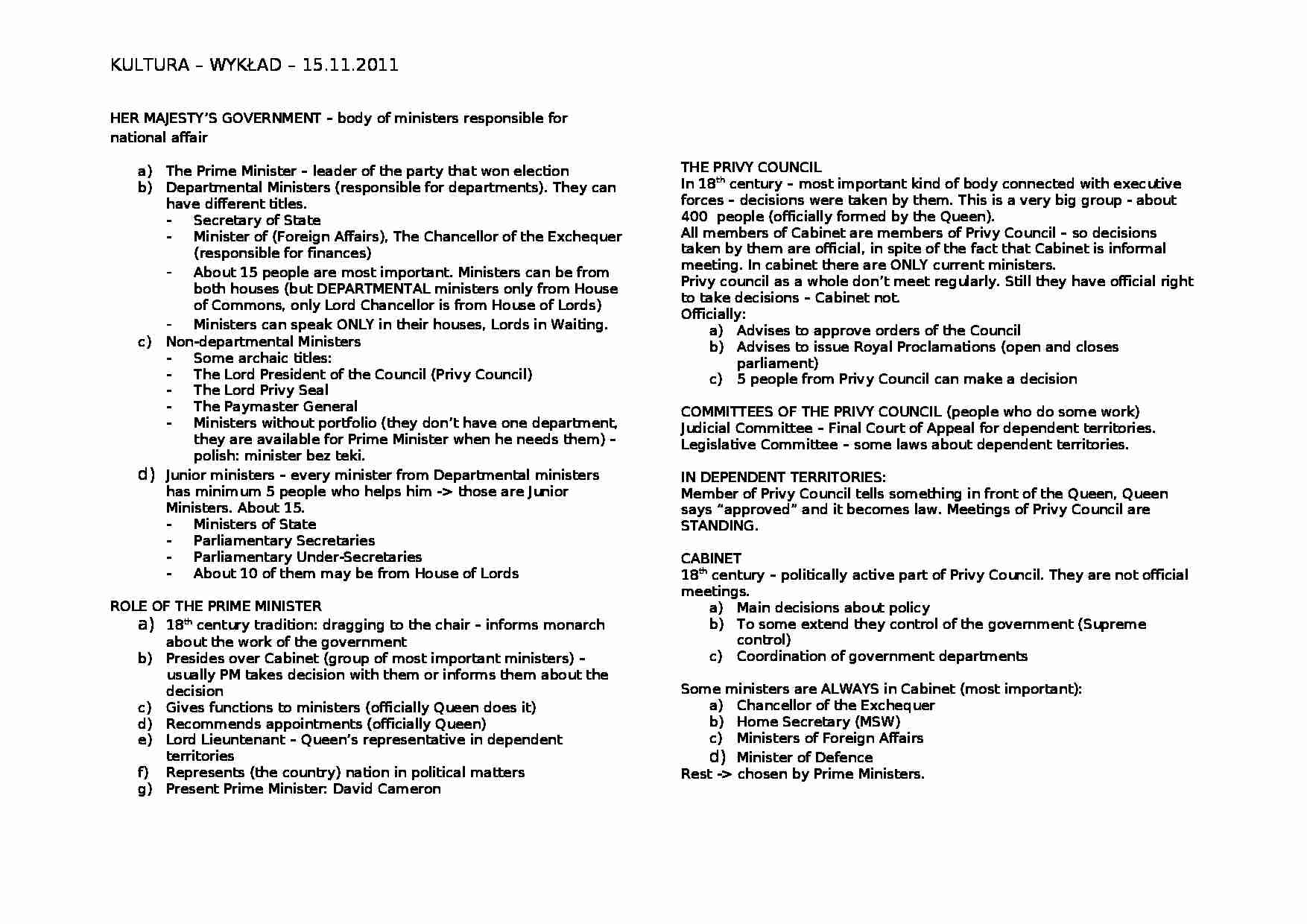To tylko jedna z 2 stron tej notatki. Zaloguj się aby zobaczyć ten dokument.
Zobacz
całą notatkę


HER MAJESTY'S GOVERNMENT - body of ministers responsible for national affair
The Prime Minister - leader of the party that won election
Departmental Ministers (responsible for departments). They can have different titles.
Secretary of State Minister of (Foreign Affairs), The Chancellor of the Exchequer (responsible for finances)
About 15 people are most important. Ministers can be from both houses (but DEPARTMENTAL ministers only from House of Commons, only Lord Chancellor is from House of Lords)
Ministers can speak ONLY in their houses, Lords in Waiting. Non-departmental Ministers
Some archaic titles:
The Lord President of the Council (Privy Council)
The Lord Privy Seal
The Paymaster General
Ministers without portfolio (they don't have one department, they are available for Prime Minister when he needs them) - polish: minister bez teki.
Junior ministers - every minister from Departmental ministers has minimum 5 people who helps him - those are Junior Ministers. About 15.
Ministers of State
Parliamentary Secretaries
Parliamentary Under-Secretaries
About 10 of them may be from House of Lords
ROLE OF THE PRIME MINISTER
18th century tradition: dragging to the chair - informs monarch about the work of the government
Presides over Cabinet (group of most important ministers) - usually PM takes decision with them or informs them about the decision
Gives functions to ministers (officially Queen does it)
Recommends appointments (officially Queen)
Lord Lieuntenant - Queen's representative in dependent territories
Represents (the country) nation in political matters
Present Prime Minister: David Cameron
THE PRIVY COUNCIL
In 18th century - most important kind of body connected with executive forces - decisions were taken by them. This is a very big group - about 400 people (officially formed by the Queen).
All members of Cabinet are members of Privy Council - so decisions taken by them are official, in spite of the fact that Cabinet is informal meeting. In cabinet there are ONLY current ministers. Privy council as a whole don't meet regularly. Still they have official right to take decisions - Cabinet not.
Officially:
Advises to approve orders of the Council
Advises to issue Royal Proclamations (open and closes parliament)
5 people from Privy Council can make a decision
COMMITTEES OF THE PRIVY COUNCIL (people who do some work)
Judicial Committee - Final Court of Appeal for dependent territories.
... zobacz całą notatkę




Komentarze użytkowników (0)